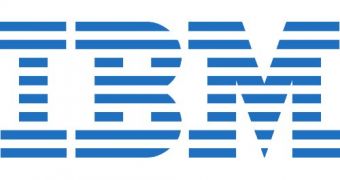With Globalfoundries on an acquisition spree, analysts have been keeping an eye out to determine which semiconductor fabs have a higher chance of falling under its watchful gaze. Said fabs would need to already possess sufficiently advanced technologies and to belong to certain companies whose business needs are no longer served too well by them. Considering these criteria, analysts from the Petrov Group were reportedly led to believe that IBM's fab might be next on Globalfoundries' list.
IBM spends quite a few resources on researching materials and structures of future semiconductors, but it is no longer profitable to actually manufacture said chips. As such, the company may consider giving up on this business outlet, just like it stopped making personal computers in 2004. Globalfoundries would benefit from buying off the foundry, mostly because it would be more convenient than building a new one. The chip manufacturer is already building a mega-fab in Luther Forest, New York (costing $4.1 billion).
Buying IBM's fab would also give Globalfoundries a measure of control over future marketing developments. Specifically, the foundry would get IBM's customers, which, in turn, would have to migrate to newer and more advanced processes. This would give it a clear hold over that segment.
“By manufacturing advanced microprocessors for AMD and IBM, Globalfoundries would effectively preempt fabrication in that challenging segment; penetration into processor manufacturing has been one of TSMC’s corporate objectives for many years,” Boris Petrov, the principal analyst of Petrov Group and a former director of strategic marketing at Chartered Semiconductor, said.
“It is highly probable that IBM will consider a business alliance of some sort with Globalfoundries. […] With its fabrication facilities worldwide, and a foundation in complex processor design and manufacturing, Globalfoundries should be able to incorporate state-of-the-art support for IBM, drive business economies, and ensure growth. Globalfoundries could be an ideal outlet for IBM's IC fabrication business, enabling it to sell a business that has not met financial performance requirements for years, and still providing it the depth, scope, and resources needed to not only provide manufacturing security for IBM but also further ensuring success of its foundry business,” Mr. Petrov wrote in his column.
Of course, IBM selling its fab would not completely lock it out of future events, since that would be a waste after having invested so much in development of materials and other things needed for future manufacturing processes. The technology-based solutions company will likely continue to conduct R&D services.
“IBM will continue to do research – research and engineering services are IBM's strengths – not low cost manufacturing. […] [IBM has invested a lot in] SOI, eDRAM, TSV, 3D silicon and all the expensive material science directions that IBM developed for its internal needs. In my scenario, IBM will provide process and materials research [and the potential buyer for the fab] will provide common platform wafer foundry services,” Boris Petrov said in a conversation with X-bit labs.

 14 DAY TRIAL //
14 DAY TRIAL //